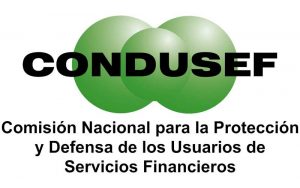
The REDECO “Registry of Collection Firms” is a tool of the National Commission for the Protection and Defense of Users of Financial Services (“CONDUSEF”), which is a decentralized public agency with its own legal personality and assets, under the Ministry of Finance and Public Credit, which is regulated by the Law for the Protection and Defense of Users of Financial Services and various general provisions.
The purpose of this note is to provide further information on the operation of REDECO and the general provisions applicable to financial institutions in the area of collection agencies (the “Provisions”).
The Provisions regulate the nature and operation of REDECO, which is a tool available to users of financial services (the “Users”) created to: (i) identify which collection agencies are used by financial institutions to collect their receivables, and (ii) to present complaints derived from the performance of such intermediaries in the collection of credits, loans or financing granted by financial institutions to users.
According to the definition provided by the Provisions, collection agencies are: “(…) an individual or legal entity that acts as a service provider of the Financial Institution, for the purpose of extrajudicially requesting payment of the debt, as well as negotiating and restructuring the credits, loans or financing granted by them to their clients”. Since its use by credit institutions, the Collection Offices began to engage in certain illicit conducts to the detriment of Users and third parties, such as intimidation and threats of imprisonment, summons to persons not related to the debt, telephone calls from unidentifiable numbers, summons for payment on non-business days and hours, sending documents with the appearance of judicial orders, etc.
To stop and prevent these malpractices, REDECO was created, and in December 2018 the provisions regulating it were amended. REDECO keeps a registry of all collection agencies, requires them to identify themselves properly (name, address, telephone number, financial institution that granted the loan, etc.), and not to engage in the aforementioned practices, since citizens may file a complaint with CONDUSEF, which may sanction financial institutions with fines ranging from 13,458 pesos to 134,580 pesos for each non-compliance detected. On the other hand, the Federal Criminal Code establishes penalties of one to four years of imprisonment and a fine of 50 thousand to 300 thousand pesos for those who carry out illegal extrajudicial collection activities. In 2016, REDECO received 28,220 complaints and in 2017 it received 28,652 user complaints, of these 28,220 complaints in 2016, 7,524 corresponded to the four causes typified as a crime.
On December 11, 2018, amendments to the provisions referred to above were published in the Official Gazette of the Federation, including the following: a) General Provisions for the Registration of Financial Service Providers; b) General Provisions for the Organization and Operation of the Bureau of Financial Institutions; c) General Provisions on Abusive Clauses contained in Adhesion Contracts; d) General Provisions that regulate CONDUSEF’s Self-Correction Programs; and e) General provisions applicable to financial entities in the area of Collection Offices.
References:
- http://www.dof.gob.mx/nota_detalle.php?codigo=5546191&fecha=11/12/2018
- Law for the Protection and Defense of Financial Services Users (Ley de Protección y Defensa al Usuario de Servicios Financieros)
- CONDUSEF Statistical Yearbook 2017
- General Organization Manual of the National Commission for the Protection and Defense of Financial Services Users (Comisión Nacional para la Protección y Defensa de los Usuarios de Servicios Financieros)
- General provisions applicable to financial institutions in the area of Collection Offices
- https://www.condusef.gob.mx/Revista/index.php/usuario-inteligente/servicios-financieros/477-ya-conoces-el-redeco




